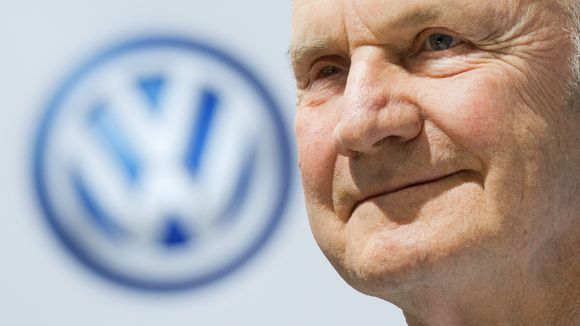FRANKFURT, Germany (Web Desk/Agencies) – Ferdinanc Piech, chairman of the board of Volkswagen AG and a major figure in the German auto industry, has stepped down after clashing with other board members over his criticism of the company’s top management.
Volkswagen said in a statement Saturday that Piech, 78, was resigning with immediate effect.
Piech had said in an interview that he was distancing himself from CEO Martin Winterkorn. That stance was rejected by other members of the board who said that he had not consulted with them.
The Volkswagen AG statement said that the board’s steering committee had met and decided that “the necessary mutual trust necessary for successful cooperation does not exist.”
The statement said that deputy board chairman Berthold Huber would serve as interim chairman.
Piech served as Volkswagen CEO from 1993 to 2002, gaining credit for turning the company around and expanding its reach with new brands such as Czech car maker Skoda at the lower end of the market and Bentley, Bugatti and Lamborghini at the luxury end.
The grandson of Ferdinand Porsche, who founded the sports car company with that name and designed the first version of the VW Beetle, Piech has been a major power broker in the German auto industry. He formerly worked at Porsche and as the head of luxury carmaker Audi, owned by Volkswagen.
At Volkswagen, he was behind the re-creation of the 1960s-era Beetle as the New Beetle and launched a luxury model, the Phaeton, which stretched Volkswagen’s brand image as a mass-market carmaker. As VW board chairman he turned the tables on an attempt by Porsche to take over Volkswagen. Porsche wound up overloaded with debt and it was Volkswagen that took over Porsche and folded it into its stable of brands.
Volkswagen is profitable and saw global sales pass the 10 million mark last year as it pursues its goal of dethroning Japan’s Toyota as the world’s largest automaker. But its core Volkswagen brand has struggled to hold down costs and to gain market share in the United States.














